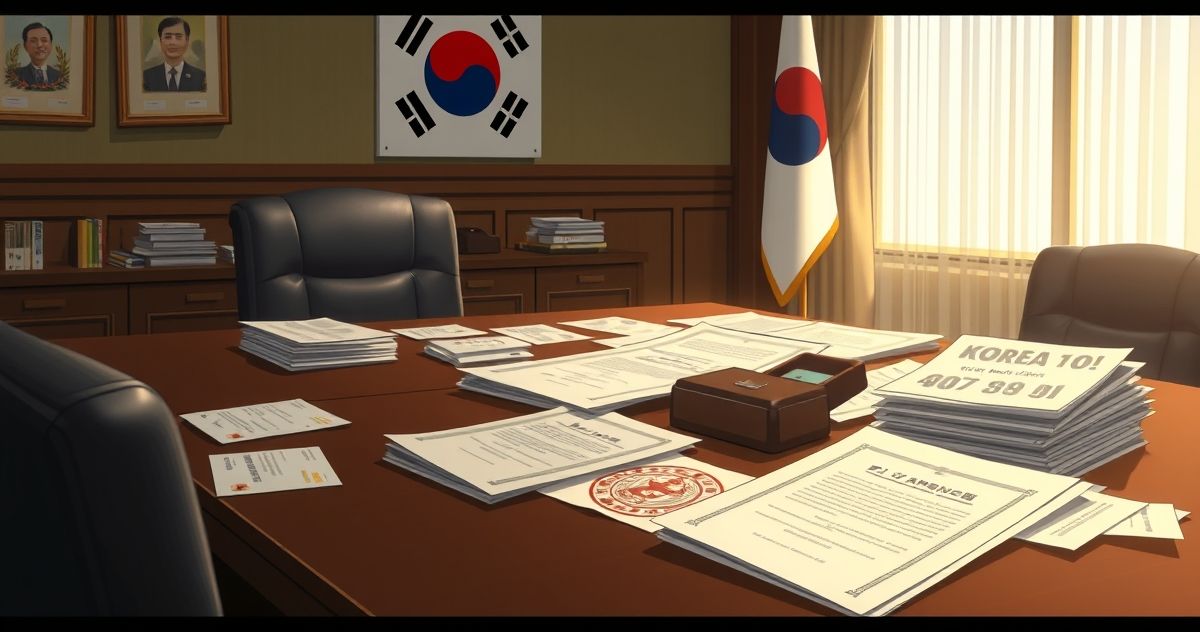
Post-Declaration Document Creation Exposed
The Special Prosecutor's investigation team led by Cho Eun-seok revealed on July 1st that a new martial law declaration document was created after former President Yoon Suk-yeol's initial declaration on December 3rd, only to be subsequently discarded. This discovery provides crucial evidence of the chaotic circumstances surrounding the controversial martial law declaration.Allegations of Retroactive Documentation
According to the Special Prosecutor's team, a different version of the martial law declaration document was prepared after Yoon's initial announcement, featuring content distinct from the original proclamation. This revelation suggests that the martial law declaration was implemented hastily without adequate preparation, raising serious questions about its legitimacy. Former President Yoon's legal team has argued in Constitutional Court proceedings that matters requiring security clearance can be approved retroactively. However, the discovery of a post-hoc declaration document suggests that even Yoon's side acknowledges the legal vulnerability of unsigned proclamations.Former Prime Minister Han Duck-soo Under Scrutiny
The investigation has also raised suspicions that former Prime Minister Han Duck-soo may have signed the martial law declaration retroactively. Under South Korea's Martial Law Act, both the President and Prime Minister must sign any martial law declaration. If retroactive signing is confirmed, it could severely undermine the declaration's legal foundation. During his tenure as acting president, Han emphasized political neutrality by refusing to appoint Constitutional Court justice nominees who might influence Yoon's impeachment proceedings. However, if these allegations prove accurate, his direct involvement in the December 3rd martial law incident could create significant political repercussions.Legal Implications and Future Outlook
The retroactive creation and signing of martial law documents strikes at the heart of the declaration's legal validity. Under South Korea's Constitution and Martial Law Act, martial law declarations must follow strict procedural requirements, with post-hoc ratification or supplementation generally prohibited. The Special Prosecutor's team has committed to conducting a thorough investigation to uncover the truth. Any confirmed procedural violations in the martial law declaration process could significantly impact the treason charges and become a crucial point of contention in future trials.Constitutional Crisis Implications
This controversy further amplifies questions about both the premeditation and legality of the December 3rd emergency martial law incident. The situation represents one of the most serious constitutional crises in South Korea's democratic history, involving the intersection of executive power, military authority, and civilian oversight. Legal experts note that the proper documentation and authorization of martial law declarations are fundamental to maintaining democratic checks and balances. The alleged procedural irregularities could set important precedents for how emergency powers are exercised and constrained in South Korea's constitutional framework. The ongoing investigation by the Special Prosecutor's team and the Constitutional Court's eventual ruling will likely have lasting implications for South Korea's democratic institutions and the boundaries of presidential power during national emergencies.Original: https://trendy.storydot.kr/political/martial-law-document-controversy


0 Comments